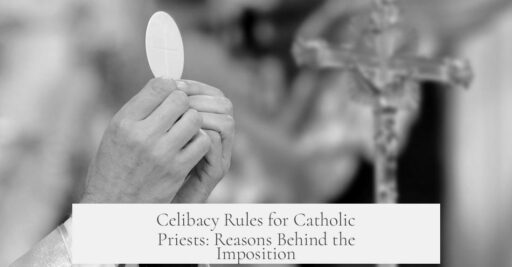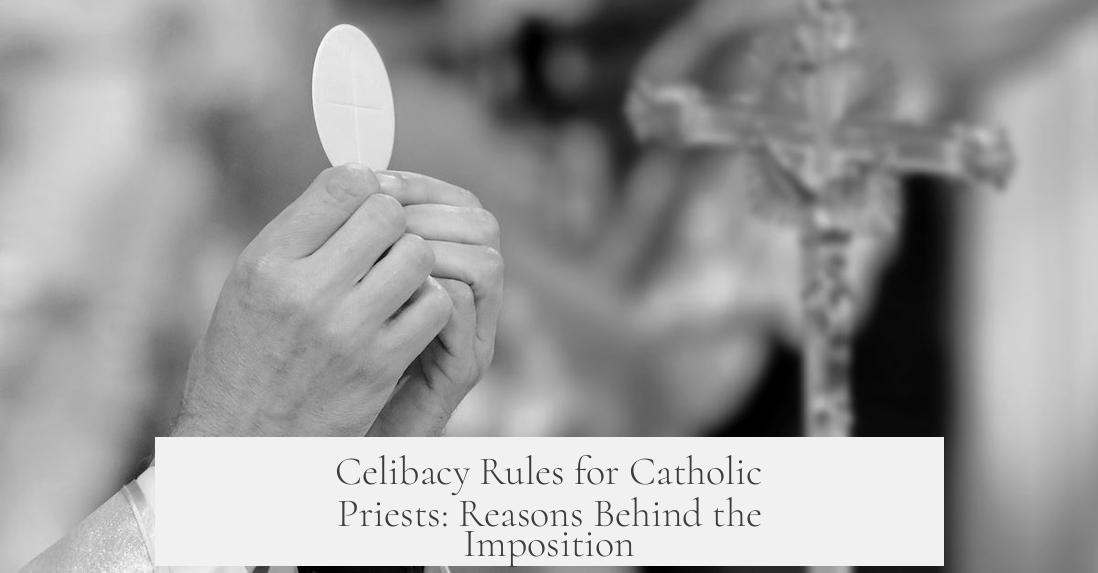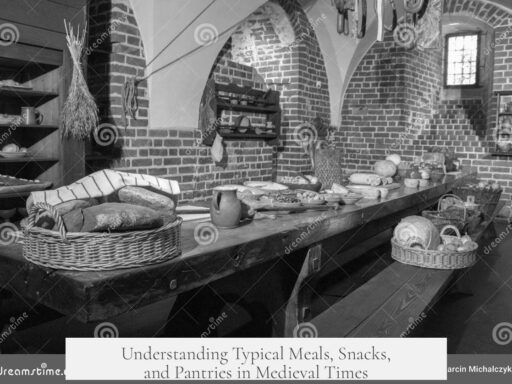Celibacy was imposed on Catholic priests mainly to prevent church property from passing to priests’ heirs, uphold spiritual dedication, and reduce corruption within the clergy. This practice safeguards church assets, supports priests’ full commitment to their mission, and reinforces the moral integrity of the priesthood. Multiple historical, financial, social, and theological factors underpin this rule.
One of the primary reasons was to protect church property and inheritance lines. Priests who married and had children could pass church lands and assets to their heirs. This practice risked the permanent loss of valuable property from the church’s control. The church aimed to retain its holdings within the institution.
- Priests without heirs typically left estates to the church upon death.
- This safeguarded church wealth and prevented land confiscation by lay families.
- Land given by the church to priests for settlement was intended to stay under church authority.
Celibacy also addressed nepotism and corruption within the clergy. Allowing priests to marry encouraged the rise of family dynasties controlling ecclesiastical offices. Positions passed to sons or relatives, turning the priesthood into a family business rather than a spiritual vocation. This compromised the church’s moral authority and governance.
- Family influence could override adherence to church teachings.
- Political and social power of priests made nepotistic practices especially harmful.
- Celibacy reduced risk of priests favoring kin over church interests.
Practically, celibacy freed priests from domestic responsibilities. This permitted greater availability and dedication to ministry. Priests could respond quickly to pastoral needs, such as emergencies or sacraments. Balancing family duties with spiritual ones would divide attention and reduce effectiveness.
- Priests could avoid pressures from family expectations.
- Celibacy allowed complete focus on their religious mission without distractions.
- Serving “two masters”—God and family—was seen as incompatible with priestly duties.
Financial concerns also influenced celibacy rules. The church sought to avoid responsibility for priests’ widows and offspring after priests died. Supporting families of deceased clergy could burden church resources. Celibacy eliminated this potential social welfare obligation.
Maintaining the prestige and purity of the church factored strongly into the decision. Reformers like Pope Gregory VII (Hildebrand) pushed celibacy to elevate church status and reduce corruption that plagued the 10th and 11th centuries. They linked sexual abstinence to the sanctity of the priestly office, especially regarding the Eucharist.
- Celibacy reduced hypocrisy by ensuring clergy lived by the moral standards they preached.
- Enforcing celibacy enhanced respect toward the church as a whole.
- The Second Lateran Council in 1139 codified celibacy as mandatory for priests.
Power and control considerations played a subtle role. Celibacy symbolized priests’ total devotion to the church, signaling that spiritual commitment transcended earthly desires and relationships. This was a form of institutional authority and spiritual discipline aimed at both clergy and laity.
Historically, the enforcement gained momentum during the investiture controversy (late 11th to early 12th century). Church reforms targeted simony and clerical marriage to purify and centralize church power. The church sought to assert independence from secular rulers who interfered with appointments.
Lastly, celibacy preserved the sanctity of confession. Since priests administered forgiveness and counsel, reducing sexual relations prevented conflicts of interest or scandal that might compromise this sacred role.
| Aspect | Purpose | Impact |
|---|---|---|
| Property & Inheritance | Keep church lands within institution | Financial stability for church |
| Nepotism & Corruption | Prevent family control of offices | Improved clergy integrity |
| Practical Ministry | Allow full dedication and availability | Effective pastoral service |
| Financial & Social | Avoid church responsibility for families | Cost savings |
| Prestige & Purity | Enhance church esteem and moral example | Higher trust and respect |
| Power & Control | Demonstrate discipline and authority | Institutional influence |
| Historical Context | Support reforms and oppose secular interference | Centralized church power |
| Confession | Preserve sanctity of priestly duties | Integrity in sacramental role |
- Celibacy protects church property by preventing inheritance by priests’ families.
- It limits nepotism and family dynasties within the clergy.
- Celibacy allows priests complete focus on their ministry and community.
- The rule prevents financial burdens on the church after priests’ deaths.
- It raises the moral stature and purity of the priesthood.
- Historically, it was enforced to support church reforms and independence.
- Celibacy also preserves the sacred nature of confession and priestly service.
Why Was Celibacy Imposed on Catholic Priests?
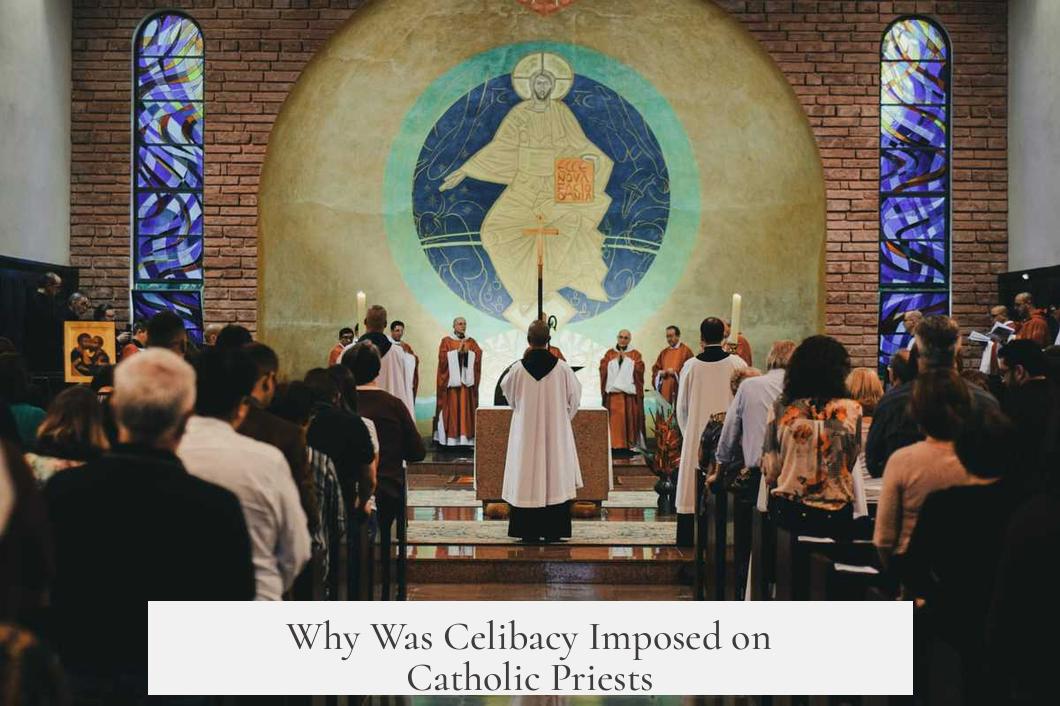
Celibacy was imposed on Catholic priests primarily to preserve church property, prevent nepotism, maintain the purity of the church, and enhance the prestige and power of the clergy. While spiritual reasons are often cited, practical, political, and economic factors played equally strong roles in shaping this rule.
Let’s unravel this complex historical thread. Why did the Catholic Church decide that priests must give up family life? The short answer: it wasn’t just about being holy or pious. It was also about land, power, and control.
Protecting Church Property and Inheritance
Back in the Middle Ages, land was power—and the church owned a LOT of it. Priests often received parcels of land as part of their role. If priests married and had children, guess who that land went to? Their kids, not the church.
This caused headaches. The church wanted to keep its property intact, not scattered among various priestly families. So, if priests remained celibate and had no heirs, their estates naturally passed back to the church. This prevented land from slipping out of church hands. No offspring meant no inheritance disputes. The church found this arrangement practical and profitable.
Think of it as the church’s way of saying, “Keep the land family-free, and the church stays rich.” College history classes often wax poetic about this.
Combating Nepotism and Corruption
Priests were powerful—socially, politically, economically. Some took advantage of this by favoring their own kin when deciding church appointments. Imagine a priest who hands his job down like a family business. It turned positions of faith into a nepotistic dynasty.
This created corruption, weakened the church’s moral authority, and led to “bad” priests. Often, sons were installed as successors regardless of their calling or qualifications. This caused spiritual and administrative chaos. Celibacy helped break this vicious cycle. Without legitimate children, priests couldn’t pass their offices or land to kin.
Plus, there was concern priests might listen more to their wives than to church doctrine. That was a problem the church wanted to avoid.
Practical Considerations for Priests
A priest’s job demands flexibility and availability. Ready at any moment to tend to the sick, hear confessions, or perform last rites. Having a family complicates this. Family needs require time and attention, which splits focus.
Celibacy lets priests devote themselves fully without the competing demands of home life. It frees them from the pressure of providing for loved ones or balancing domestic priorities. Even the priests themselves understood this. One comment cleverly put it, “You can’t serve two masters.” Serving both God and family perfectly? Rare. With celibacy, no divided loyalties.
Further, families of priests faced intense social pressure. Remaining celibate spared priests’ families from scrutiny or hardship arising from a priest’s not-so-everyday lifestyle.
Financial Responsibility and Avoiding Church Burdens
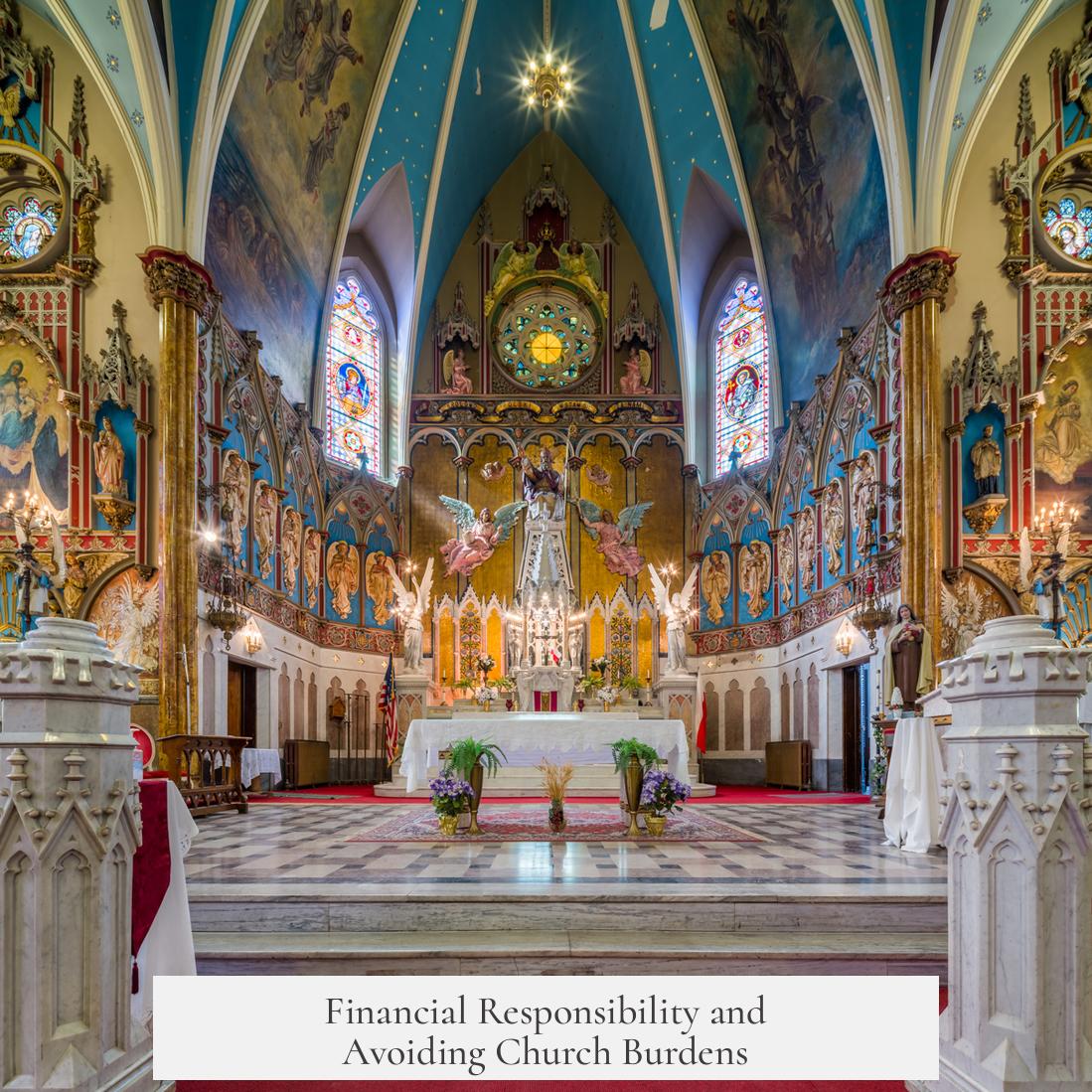
Imagine a priest dies, leaving behind a widow and children. Who cares for them? The church? The community? This was an expected social and financial burden. The church preferred to avoid such obligations. By enforcing celibacy, it minimized chances priests would leave dependents requiring church support.
This was a cost-saving measure as much as a moral one. Funds from parishioners could then focus on community welfare, preaching, and other church activities—not supporting priests’ families.
Prestige, Purity, and Theological Reasons
Then there’s the prestige factor. Pope Hildebrand (later Pope Gregory VII) in the 11th century pushed for celibacy partly to raise the church’s stature. After decades of decline and moral lapses, the church wanted a clean image.
He feared no one would respect an institution that couldn’t follow its own rules. Celibacy symbolized purity and dedication, especially linked to the sacredness of the Eucharist. Sexual relations were viewed as possibly polluting that sanctity.
Moreover, it addressed hypocrisy. How could priests preach monogamy and chastity if they didn’t personally observe it? The rule encouraged the “walk the walk” approach.
Power and Control
Celibacy also demonstrated control—over priests and the masses. Asking men to give up families and sex is no small demand. It signals that the church’s mission supersedes personal desire.
This elevated the clergy above ordinary people and justified their special social status. Pretending to have no worldly distractions fostered an aura of holiness and authority. Though, let’s be honest, perfect adherence might be “theoretical” rather than universal.
Historical Context and Church Councils
The rule wasn’t always strict. Early church history shows married priests were common. But reforms began under Hildebrand in the 11th century, aiming to eliminate simony (buying church offices) and reinforce church independence from secular rulers.
The Investiture Controversy—a struggle over who appointed bishops—pushed the church further to enforce celibacy to keep priests loyal solely to Rome. The landmark Second Lateran Council in 1139 officially required all priests to remain celibate, making it universal and binding.
Preserving The Sanctity of Confession
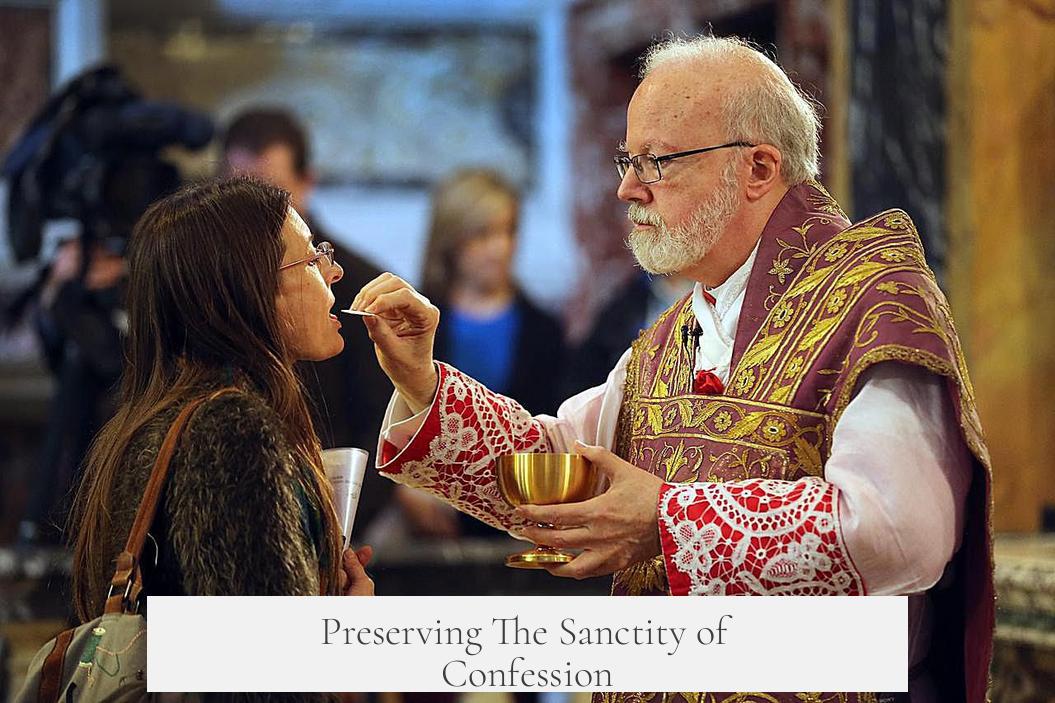
One lesser discussed reason is to preserve the sanctity of confession. Celibacy prevents conflicts of interest or moral failings that might taint this sacred ritual. The priest’s life, entirely dedicated to God, ideally protects this purity.
Wrapping It Up: More Than Just Spiritual Reasons
Celibacy’s imposition reflects an intricate blend of religious ideals, practical governance, economic strategy, and political maneuvering. It’s a mix of keeping land and wealth firm in church hands, limiting corruption and nepotism, and ensuring priests maintain full devotion without family distractions.
For example, if a priest had a family, his focus might shift, church property might end up in private hands, and the church could face financial responsibility for dependents. Celibacy helps prevent all these complications.
But it’s not just a rigid, dry rule. It’s a centuries-old tradition shaped by history, power struggles, and sincere efforts to maintain holiness and authority. The church’s celibacy rule asks men to give up one of life’s strongest ties—family—to commit wholeheartedly to their calling.
Does this explain why the Catholic Church insists on celibacy? Absolutely. But it also invites questions: In the modern era, where social and economic conditions differ vastly, does this rule still serve the church’s mission effectively? Is celibacy more about spiritual purity or maintaining institutional control? Food for thought.
Why did the Church impose celibacy to prevent loss of property?
Priests with children often left lands and estates to their heirs, not the Church. Celibacy ensured church property stayed within the Church, avoiding inheritance by priests’ families. This helped keep Church assets intact.
How did celibacy relate to corruption and nepotism among priests?
Without celibacy, many priests passed their positions to sons, turning priesthood into a family business. Church leaders saw this as corrupt and aimed to prevent family favoritism with celibacy rules.
What practical reasons supported celibacy for priests?
Celibacy freed priests from family obligations, allowing full attention to their missions. It also avoided conflicts between family and spiritual duties and helped priests respond promptly to community needs.
Why was celibacy linked to the Church’s financial concerns?
The Church wanted to avoid supporting priests’ families if priests died. Celibacy meant no widows or children would depend on Church funds, reducing financial burdens on the institution.
How did celibacy enhance Church prestige and purity?
Leaders like Hildebrand enforced celibacy to raise the Church’s status and fight corruption. It was seen as a way to maintain purity in religious offices and prevent hypocrisy among clergy.
What historical events influenced the Church’s celibacy requirement?
Celibacy was formally required by the Second Lateran Council in 1139. It followed reforms after conflicts like the Investiture Controversy and efforts to eliminate simony and enforce clerical discipline.
